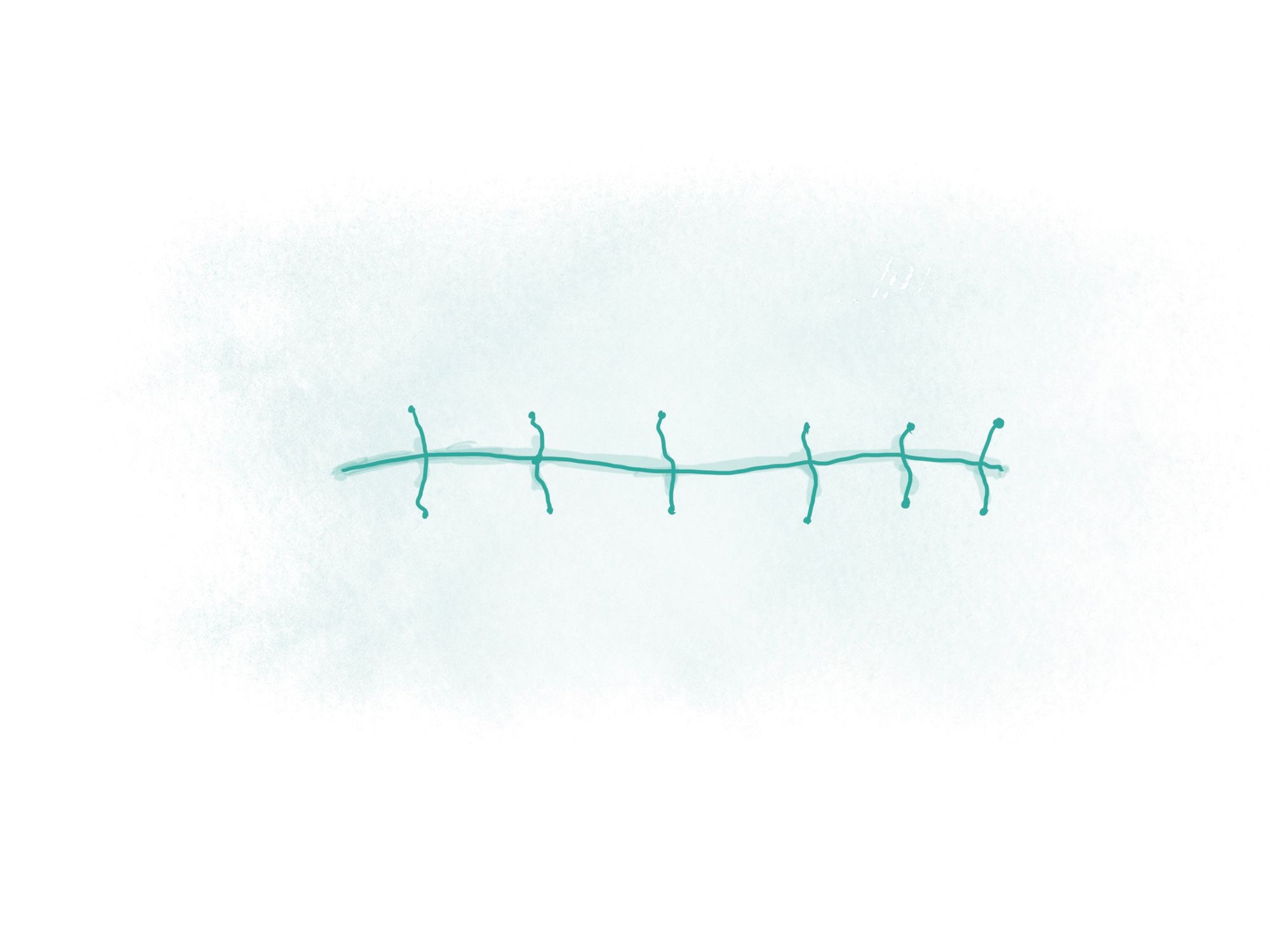Six Stitches
Chapter 2: At four and a half years old, the call of nature would take a turn for the worse.

At four and a half years old, there was no calling louder than the call of nature. I was in the upstairs bathroom of our townhouse apartment, seated on the toilet, faced with a serious problem. And in moments, it would take a turn for the worse.
We lived at 42nd and Post on the upper east side of Indianapolis. Our townhouse was perfect for a family of six, especially if you didn't have any other choice. An image search for "Indianapolis 42nd and Post" doesn't sell the neighborhood very well, but if you can picture it without the police lights and boarded-up houses, you might be able to see its potential.
Our living room was a small area at the front of the home, decorated by a large wooden-cased stereo system Dad had owned since well before I was born. We listened to the radio all the time, usually tuned to “Love 98, WXIR,” which was the local Christian station. At the time, about 1984, Dad was trying to break into the life insurance business through a multi-level marketing organization while Mom went door-to-door selling makeup for Avon.
For Mom, being an "Avon Lady" was one way to help make ends meet and one of my parent's many attempts to pursue some financial independence. And we certainly needed every penny. Sometimes, the only thing between me and a fresh banana was a couple of orders of mascara to pay for it – and from what I knew, that would have been a big sales day too. It was a soft market for makeup sales, especially in our neighborhood, since the consumer demand better favored things like meth and macaroni and cheese.
There really was a lot of entrepreneurship in our neighborhood. And while drug trafficking was frowned upon, it was one of the bigger job creators in the area. In fact, my friend's dad next door was in the industry and occasionally in jail for it.
Another income creator for the neighborhood was the clinics where residents might part with some of their excess plasma for a fee. Despite these opportunities, my parents preferred to focus on multi-level marketing and door-to-door sales gigs while Dad hunted for more permanent employment in a non-criminal industry.
Not that it's criminal to sell life insurance, even through a pyramid scheme. It's just very hard to make it when you're landlocked in an area where people think life insurance requires bullets.
But let's get back to my situation.
The rest of this chapter is available to paying subscribers. Sign up here to read the rest.
